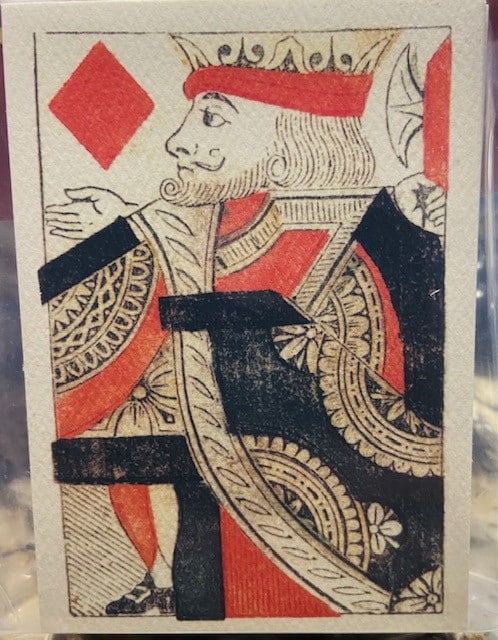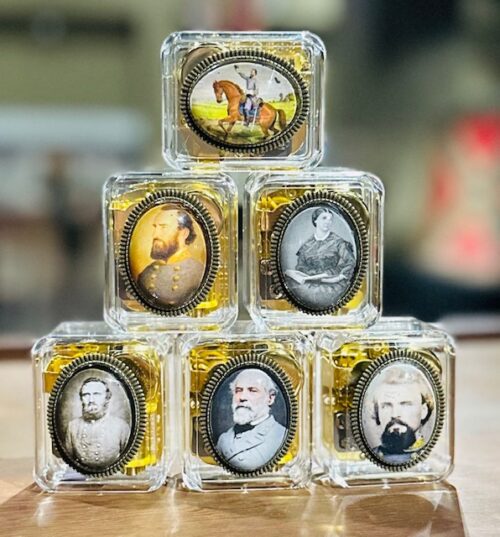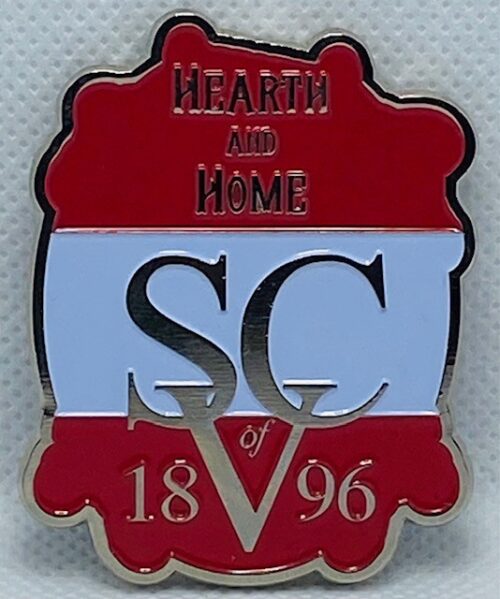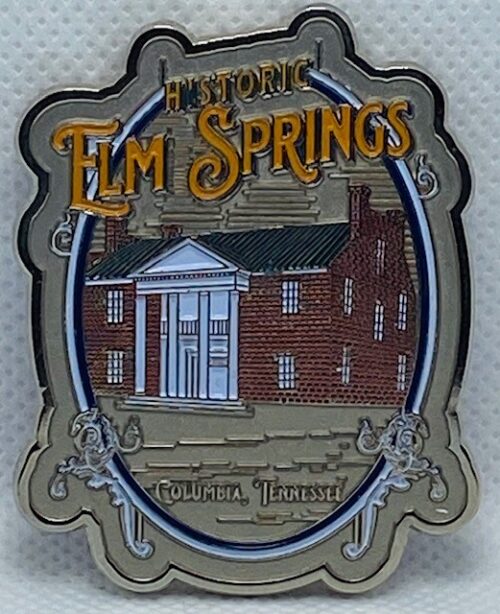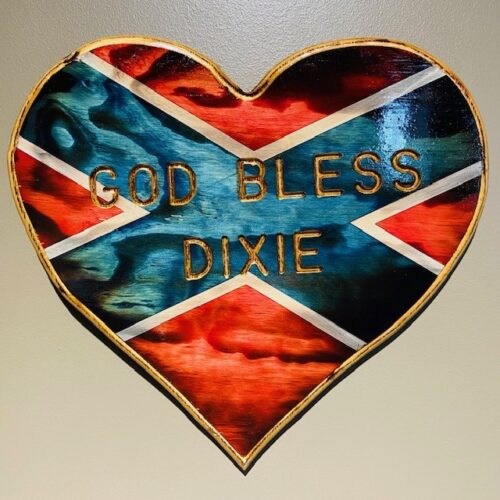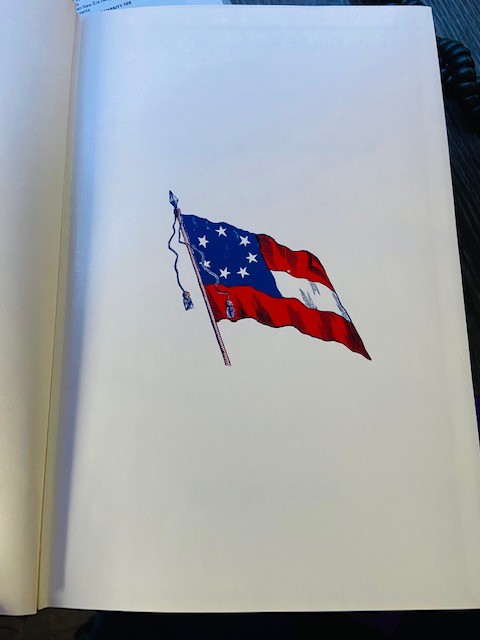-
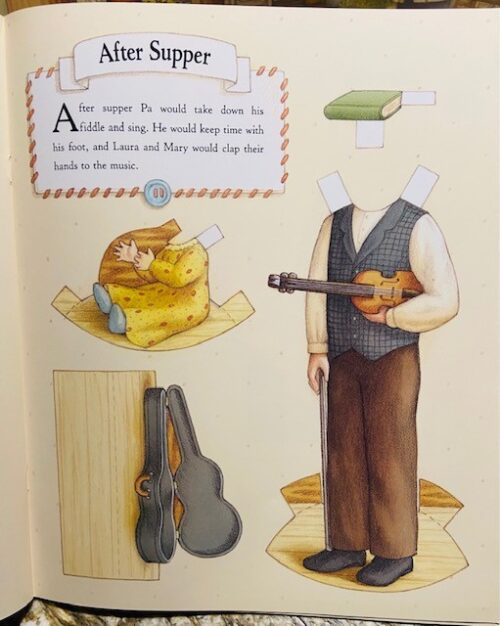
 This adorable Little House on the Prairie paper doll book is so much fun! Comes with Ma, Pa, Mary, Laura, Carrie and of course their faithful dog, Jack. The backdrop is double sided so you can choose from the cabin scene or the 'Big Woods.' The back of the book has a pocket where you can store your paper dolls. This is the perfect gift for young girls and Little House fans of all ages!
This adorable Little House on the Prairie paper doll book is so much fun! Comes with Ma, Pa, Mary, Laura, Carrie and of course their faithful dog, Jack. The backdrop is double sided so you can choose from the cabin scene or the 'Big Woods.' The back of the book has a pocket where you can store your paper dolls. This is the perfect gift for young girls and Little House fans of all ages! -
Sale!
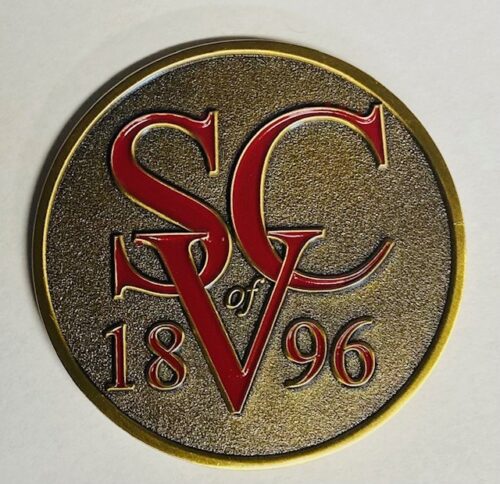
 We have a limited supply of these beautiful coins that were produced for Jason Boshers for his term as Lt. Commander-in-Chief.
We have a limited supply of these beautiful coins that were produced for Jason Boshers for his term as Lt. Commander-in-Chief. -
 During the Civil War, few men had seen camels on the battlefield. But one Mississippi infantry marched into battle with Old Douglas, who served with the Bloody 43rd and died in the Siege of Vicksburg. The regiment became known as the Camel Regiment, and its soldiers carried memories of Old Douglas through the end of the war and until the end of their own lives. They went on to fight in fourteen battles, including Corinth, Vicksburg, Chickamauga, Atlanta, Franklin, Nashville and Bentonville before they surrendered at war's end. Author W. Scott Bell's fascination with the Camel Regiment began because his great-great-grandfather fought with them.
During the Civil War, few men had seen camels on the battlefield. But one Mississippi infantry marched into battle with Old Douglas, who served with the Bloody 43rd and died in the Siege of Vicksburg. The regiment became known as the Camel Regiment, and its soldiers carried memories of Old Douglas through the end of the war and until the end of their own lives. They went on to fight in fourteen battles, including Corinth, Vicksburg, Chickamauga, Atlanta, Franklin, Nashville and Bentonville before they surrendered at war's end. Author W. Scott Bell's fascination with the Camel Regiment began because his great-great-grandfather fought with them. -
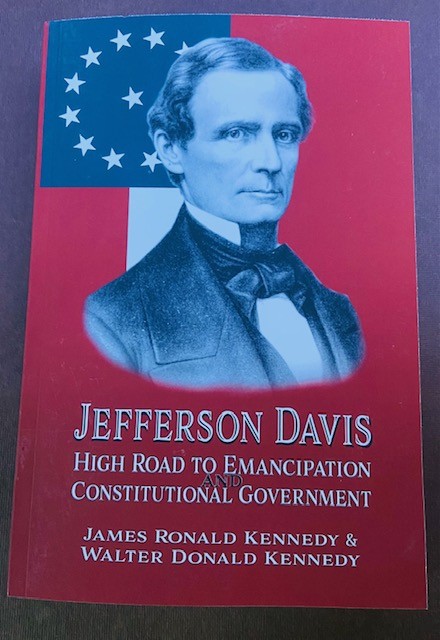 The latest book from the Kennedy brothers. Jefferson Davis was a proponent of the high road to emancipation. He looked to the day in which slaves would be prepared to live within and participate in a democratic society. He did more than advocate for the high road to emancipation - as this book documents, he practiced his belief in the ultimate emancipation of Southern slaves. Many of his former slaves left for posterity their testimony about their former master - a master who prepared them for freedom as self-sustaining members of society. The North's ruling elites justified their invasion, conquest, and occupation of the Confederate States of America by declaring that the South was fighting to preserve slavery and that secession was treason. After the unfortunate end of the War for Southern Independence, the United States arrested Jefferson Davis on charges of treason. Davis demanded a trial, yet the United States never brought Davis to trial - why? Were they afraid they would lose in court? Davis, and through him the South, was unjustly tried in the court of public opinion - a court controlled by the North's ruling elites. This book gives the defense that Davis and the South never had.
The latest book from the Kennedy brothers. Jefferson Davis was a proponent of the high road to emancipation. He looked to the day in which slaves would be prepared to live within and participate in a democratic society. He did more than advocate for the high road to emancipation - as this book documents, he practiced his belief in the ultimate emancipation of Southern slaves. Many of his former slaves left for posterity their testimony about their former master - a master who prepared them for freedom as self-sustaining members of society. The North's ruling elites justified their invasion, conquest, and occupation of the Confederate States of America by declaring that the South was fighting to preserve slavery and that secession was treason. After the unfortunate end of the War for Southern Independence, the United States arrested Jefferson Davis on charges of treason. Davis demanded a trial, yet the United States never brought Davis to trial - why? Were they afraid they would lose in court? Davis, and through him the South, was unjustly tried in the court of public opinion - a court controlled by the North's ruling elites. This book gives the defense that Davis and the South never had.


